This article includes a list of general references, but it lacks sufficient corresponding inline citations .(November 2024) |
Viswanather Casipillai was a Crown Proctor and co-founder of the Jaffna Hindu College.
This article includes a list of general references, but it lacks sufficient corresponding inline citations .(November 2024) |
Viswanather Casipillai was a Crown Proctor and co-founder of the Jaffna Hindu College.
His grand nephew Cathiravelu Sittampalam was the first Cabinet Minister of Posts and Telecommunications in the independent Sri Lanka. [1] [2]
Viswanather Casipillai was born to a distinguished Tamil Family whose ancestry can be traced to the ancient Royal Kuriyans, highly respected noblemen of the king’s Court of the Tamil Kingdom of Nallur. Two descendants of these noblemen, Vanniyasingam Kuriyan and Canagasekara Kothanda Kuriyan, lived in Jaffna later during the Dutch regime.
In the 19th century, Visvanathar son of Vinayakar, who descended from Canagasekara Kothanda Kuriyan, abandoned the prestigious Kuriyan title as no longer relevant under the British and became known as an entrepreneur for leasing large extends of crown land at Ariyalai for salt production on large scale. Subsequently, many of his descendants were to distinguished themselves in public life of North Province.
Visvanathar had two sons Arumugam and Casipillai. The former died young and his children were brought up by the latter, his younger brother. Arumugam's eldest son Cathiravelu was C. Sittmapalam's father. He functioned as a magistrate and district judge and was the first editor of Tamil Journal "Inthu sathanam" and founder of the Saraswathy library.
Visvanthar's second son Casipillai while being C.Sittampalam’s grand-uncle was, also, his wife's grandfather. He was one of the most illustrious citizens of the North. Leonard Woolf, the British Civil Servant, author of the classic 'Village in the jungle' and husband of Virginia, a member of the Bloomsbury set ( which included Keynes, the economist) published in his autobiography a letter from Casipillai as a testimonial of his own (Woolfs) standing among Tamils. Casipillai worked closely with Sri Arumuga Navalar in promoting Hinduism, and functioned as secretary of the Saiva Paripalanai Sabey and was a co-founder and subsequent manager of Jaffna Hindu College. One of the houses there is Casipillai House in his honour. He was a great philanthropist, and was often referred to as Mudisoodamannan. He was widely sought after for his brains and original contribution to problems and called the Brains trust. Other terms were Jaffna and Mannar's Thanai Perusa Thalaivan and illangai Perumahan.
The establishment of Sitthivinayagar Kovil and Parvathy Vithyasalai were among two of his achievements. Another single contribution was his participation in the agitation for a railway to Jaffna crowned with success in 1906. His son Casipillai Arulampalam and grandson Arulampalam Visvananthan continued to follow their fathers to become one of the prestigious lawyers in Jaffna.
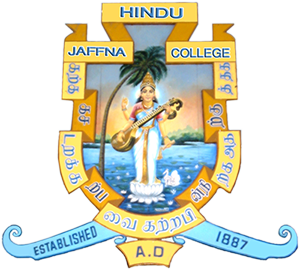
Jaffna Hindu College is a national school in Jaffna, Sri Lanka. It was founded in 1887 by a group of Hindu people who wanted an English language alternative to the Christian missionary schools.

Jaffna Central College is a national school in Jaffna, Sri Lanka. Founded in 1816 by British Methodist missionaries, it is one of Sri Lanka's oldest schools.

The Vanni chieftaincies or Vanni tribes was a region between Anuradhapura and Jaffna, but also extending to along the eastern coast to Panama and Yala, during the Transitional and Kandyan periods of Sri Lanka. The heavily forested land was a collection of chieftaincies of principalities that were a collective buffer zone between the Jaffna Kingdom, in the north of Sri Lanka, and the Sinhalese kingdoms in the south. Traditionally the forest regions were ruled by Vedda rulers. Later on, the emergence of these chieftaincies was a direct result of the breakdown of central authority and the collapse of the Kingdom of Polonnaruwa in the 13th century, as well as the establishment of the Jaffna Kingdom in the Jaffna Peninsula. Control of this area was taken over by dispossessed Sinhalese nobles and chiefs of the South Indian military of Māgha of Kalinga (1215–1236), whose 1215 invasion of Polonnaruwa led to the kingdom's downfall. Sinhalese chieftaincies would lay on the northern border of the Sinhalese kingdom while the Tamil chieftaincies would border the Jaffna Kingdom and the remoter areas of the eastern coast, north western coast outside of the control of either kingdom.

Cathiravelu Sittampalam was a Ceylon Tamil civil servant, politician, Member of Parliament and government minister.

Arumugam Canagaratnam was a Ceylon Tamil lawyer and member of the Legislative Council of Ceylon.
C. Ponnambalam was the First Mayor of Jaffna.

Kopay is a Sri Lankan town about 4 km from the city of Jaffna along Point Pedro road. An agricultural town consisting mainly of vegetable farms, paddy fields and coconut gardens. The suburb Kopay has several scholars because of very strong schooling system. Arumuka Navalar established the school managed by Suwaminathan is famous for this. Arrival of Church Missionary Society (CMS) strengthened the educational system. Kopay Christian College is one of the oldest schools in Jaffna with 150 years of service remain unbeaten in producing quality scholars.
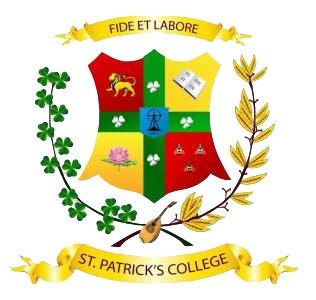
St Patrick's College (SPC) is a private school in Gurunagar, Jaffna, Sri Lanka. It was founded in 1850 by Roman Catholic missionaries.

Sanmugam Arumugam was a Ceylon Tamil irrigation engineer and writer.

Arunachalam Sabapathy was a Ceylon Tamil newspaper editor, politician and member of the Legislative Council of Ceylon.
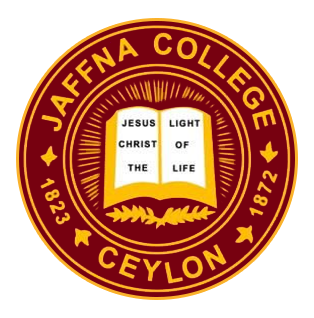
Jaffna College is a private school in Vaddukoddai, Sri Lanka. It was founded in 1871 as a successor to the Batticotta Seminary which had been established by American missionaries.
The Tissanayagam family(Mathakal), sometimes also spelled Tissainayagam, is a Jaffna Tamil family descended from Tissanayaka Mudali of Mannanpulam Mathakal. Tissanayaka Mudali (circa 1730) was a Tamil chieftain who lived during Dutch times (1658–1798).
Deshamanya Shivakumaran Pasupati is a leading Sri Lankan Tamil lawyer, President's Counsel, Solicitor General and Attorney General.
Mylvakanam Srikantha, OBE was a leading Ceylon Tamil civil servant.
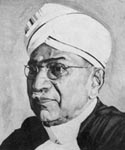
Sir Waithilingam Duraiswamy was a Ceylon Tamil lawyer, politician and speaker of the State Council of Ceylon.
Sinnathamby Rajandram was a Ceylon Tamil businessman and one of the founders of Capital Maharaja Organisation, one of the largest conglomerates in Sri Lanka. His son R. Rajamahendran was also prominent businessman and media personality who went onto serve as the chairman of Capital Maharaja.
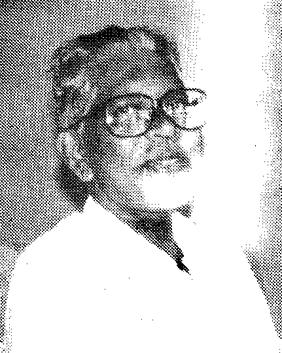
Justice Satchi Ponnambalam was a leading Sri Lankan Tamil lawyer and judge.
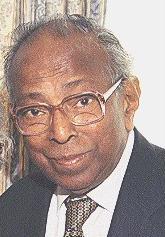
Charles Jayam Thambyrajah Thamotheram was a Sri Lankan Tamil teacher, publisher and social worker.